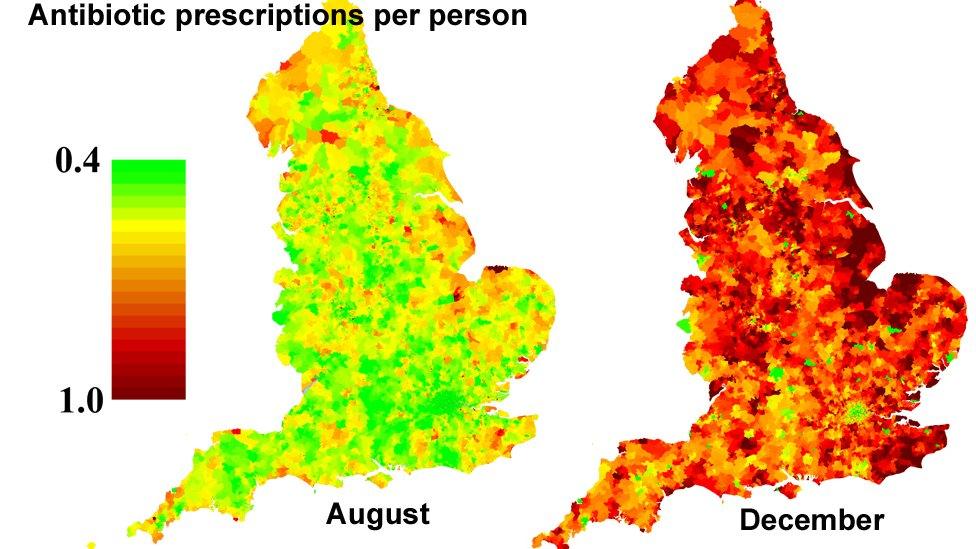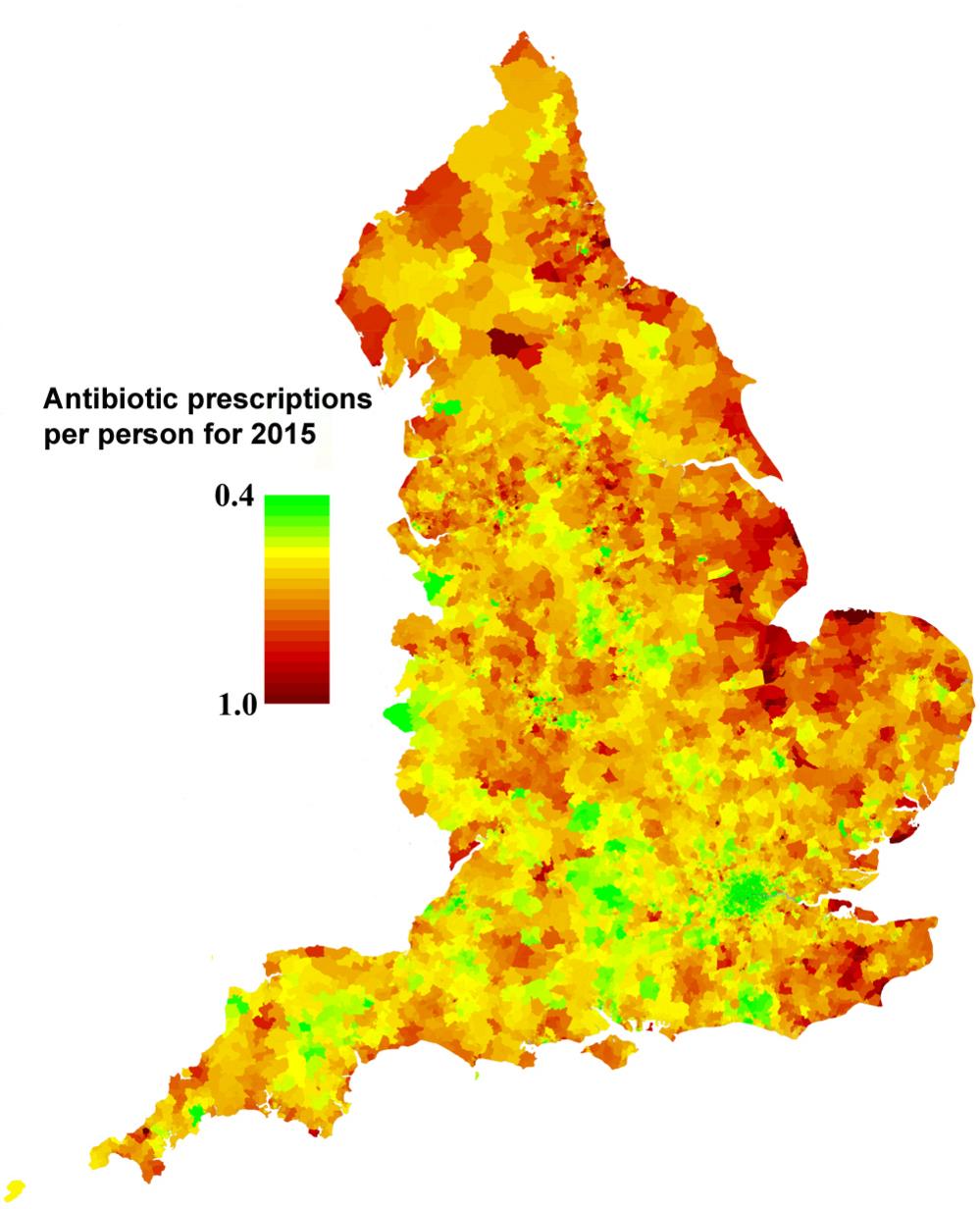Antibiotic surge revealed by seasonal maps
- Published
- comments

Heat maps comparing antibiotic prescriptions in the summer and winter of 2014
A huge and potentially inappropriate surge in antibiotic prescriptions in the winter has been identified through the first detailed maps of seasonal prescribing in England.
The charity Antibiotic Research UK, which compiled the data for the BBC, said the surge could not be explained by extra bacterial infections.
It said it was probably due to doctors handing out pills for colds and flu.
Experts said an acceptable prescribing level was still unclear.
There is a noticeable winter cold and flu season, when the viruses find it easier to spread.
Some bacterial infections are also more common in the winter - such as pneumonia, partly as a result of secondary infections in people whose lungs have been damaged by viral infections.
But others, such as urinary tract infections, are actually more common in summer.
Prof Colin Garner, of Antibiotic Research UK, told the BBC News website: "You would expect bacterial infections to possibly go up in winter.
"But they don't go up as dramatically as the heat map shows - 50% more in December compared to August.
"So the map reflects, in all probability, an over-prescribing of antibiotics at that time of year."
'Global problem'
Prof Garner said 97% of patients who asked for an antibiotic were given one.
But he said doctors were often "caught between a rock and hard place" as it could be safer to give antibiotics if it was not clear whether the patient had a viral or bacterial infection.
The National Institute of Health and Care Excellence has argued that 10 million antibiotic prescriptions are inappropriate each year.
The concern is that high levels of antibiotic use are leading to bacteria developing resistance to the drugs and becoming untreatable.
Prof Mike Sharland, a Department of Health adviser on antibiotics, said the summer-winter difference was "recognised as a global problem".
However, he said it was impossible to say at the moment how many of those winter prescriptions were genuinely inappropriate.
He told the BBC: "Obviously this is important, interesting data, but what we now need to do is identify more clearly what is appropriate and what is less appropriate seasonal variation."
Meanwhile, Antibiotic Research UK in collaboration with the data analysis company Exasol, external has also published maps showing a stark regional variation in antibiotic prescribing so far this year.

It shows that 21% fewer antibiotics are prescribed in London than in the north of England.
Deprived coastal towns, such as Skegness in Lincolnshire, also have high levels of antibiotic prescription.
Prof Garner added: "It's a problem because if we don't tackle it then medicine as we currently practise it will not be practised as we're so reliant on antibiotics."
Cancer therapy, surgery and organ transplants are all reliant on antibiotics.
'Health challenge'
Meanwhile a report by the World Health Organization (WHO) has warned that few people understand antibiotic resistance despite its clear threat to global health.
It polled 10,000 people across 12 countries - Barbados, China, Egypt, India, Indonesia, Mexico, Nigeria, the Russian Federation, Serbia, South Africa, Sudan and Vietnam.
Most wrongly thought it was people rather than bacteria that develop resistance to antibiotics.
Nearly half of people surveyed thought resistance was only a problem for people taking antibiotics regularly while in fact anyone can contract an antibiotic-resistant infection.
Dr Keiji Fukuda, from the WHO, said: "The findings of this survey point to the urgent need to improve understanding around antibiotic resistance.
"One of the biggest health challenges of the 21st Century will require global behaviour change by individuals and societies."
Follow James on Twitter, external.
- Published7 January 2015

- Published18 August 2015

- Published18 August 2015

- Published19 November 2015
